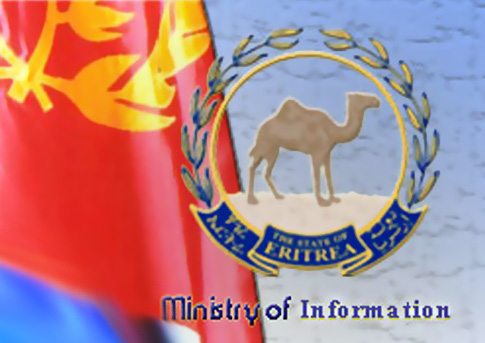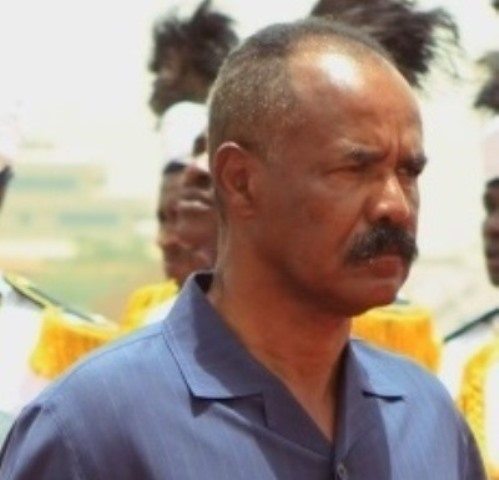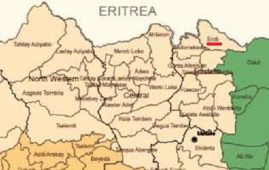[from: A Week in the Horn – Dec. 30, 2011 issue.]
The Federal High Court of Ethiopia has found two Swedish journalists, Johan Persson and Martin Schibbye, guilty of supporting terrorism and sentenced each to eleven years in jail after the pair entered the country under the auspices of a known terrorist organization, the Ogaden National Liberation Front (ONLF). The pair admitted entering the country illegally but pleaded not guilty to supporting terrorism, claiming to have entered Ethiopia to gather news information about a Swedish oil company working in the Somali region of Ethiopia. The court found this defence "unacceptable,” as the ONLF had organized the journey of the accused starting from London and travelling via Kenya and Somalia into eastern Ethiopia. This is a route well-known to be used by the ONLF in organizing terrorist activities inside Ethiopia. The two journalists were captured by Ethiopian troops after a clash with the group of rebels escorting them. The court found that this also demonstrated the level of cooperation between the ONLF and the two journalists. It was on this basis that the two were accused and found guilty of supporting the ONLF and crossing the border illegally.
Various international advocacy organizations, notably the Committee to Protect Journalists, were quick to claim the two journalists had entered the country merely for professional reasons. The same argument was made by other organizations like Human Rights Watch and Amnesty International which also claimed that the trial had produced “a political sentence”. This was exactly the claim made by the ONLF itself as well! In fact, as anyone who followed the trial could see, such assertions are implausible. The court had more than enough evidence for the journalists’ conviction, as well as their admission that they had entered the country illegally under the auspices of admitted terrorists. The trial was open and transparent.
By their comments on the trial and their reports on the journalists themselves, the Committee to Protect Journalists and other organizations tried to question the impartiality of the court and the due process of the law. They have, as usual, also raised the issue of the freedom of the press and the so-called right of journalists to do what they want irrespective of legality and the law or of any responsibility to any code of journalistic ethics. In fact, rather than trying to interfere with due process of law or advocate illegal practices, these organizations should perhaps consider the need to condemn open violations of the law and offer support to the idea of journalistic responsibility. These organizations know perfectly well that the journalistic mission the two were on could have easily been done legally without violating any law, let alone associating with a terrorist organization.
Reporting is, of course, not terrorism and no one suggests it is, but the decision of the court aside crossing illegally into a country with a group of armed terrorists on a terrorist mission hardly qualifies as responsible journalism particularly when one claims to be chasing a story about the operations of a Swedish oil company which certainly would deny any and all contacts with terrorists. Indeed, it has to be said that investigation into company activities by involvement with a terrorist group is hardly the most obvious approach to such a story. It is difficult to see any justification for taking such an approach to a business story of this kind when, by any standards, a far more effective and logical method would have been to approach the local administration and indeed the company itself either of which would have been prepared to cooperate. The two made no effort to contact the pertinent bodies for accreditation in the Somali region; instead, they started by opting for illegal means to enter the country. There have been claims that the decision to try the two was a deliberate attempt to deter journalists from trying to report on the alleged abuse of human rights in the Somali Regional State to which Human Rights Watch has made frequent, if unsubstantiated, reference. The two journalists, however, did not enter the region to investigate such allegations. On their own admission they were trying to gather information on the activities of a Swedish oil company. Equally, as any journalist knows, a terrorist organization like the ONLF believes it will benefit from the publicity provided by western journalists travelling under its auspices.
In fact, not for the first time, the double standards of certain advocacy, human rights and media organizations are apparent in their comments. The media in the countries where these groups operate function under very specific rules and regulations that govern media and journalistic activities. Whoever violates those rules is held accountable, at least eventually, as the recent detail of widespread phone-hacking in the UK makes clear. At least one newspaper there has been closed down and even the journalists have been cautious to raise claims of press freedom in the face of widespread and obvious illegalities and other excesses. The claim that accountability is proper and natural in America or Europe but wrong, even unlawful, in the developing world is a classic case of the double standards for which these advocacy and human rights organizations have become notorious. They frequently and indeed almost consistently claim that journalists (particularly western journalists) should be immune to any consequences for illegal activities and violations as long as they are committed in Africa. This is unacceptable. The media cannot be above the law in Europe or in Africa, or indeed wherever it operates. Nor can freedom of the press be allowed to be synonymous with freedom to do anything one wants or violation of legal norms whether these involve illegal entry or posing a threat to a country’s national security by involvement with a terrorist organization.
The authority of the judicial process is duly recognized by the laws of Ethiopia and its constitution, by the government and by its partners. Advocacy and human rights organizations should recognize the concept of the rule of law and accept the verdict of duly constituted courts. The government has made it clear it fully respects the rights of the media to work freely within the framework of its legal obligations and responsibilities. Indeed, the government has been working hard to encourage the creation of a genuinely free and responsible media that will assist the efforts of the government and people to create a peaceful and developed country that can play a pivotal role in the fight against terrorism in the Horn of Africa. Irresponsible behaviour by journalists, in or out of the country, does not help the process.






The fact is: if you want on inside story on what goes on among the rebels in Ogaden, there is no other way to do it. Such a story is rather more legitimate and relevant to society than the privacy details of celebrities uncovered through phone-hacking, a weird comparison anyway. The Swedish journalists, however, knew what they were doing and made the big mistake of getting caught.